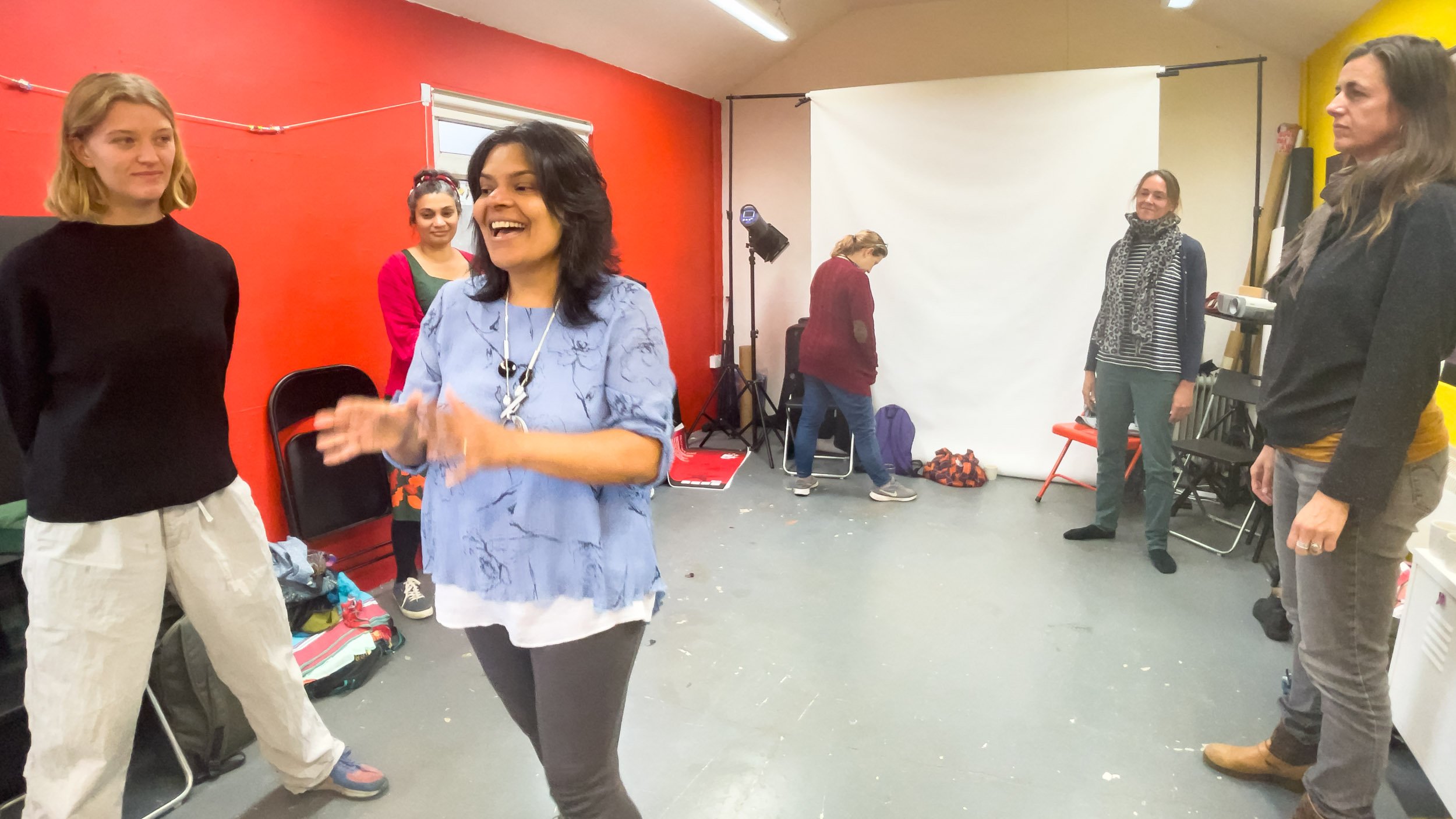Self Care for Participatory Artists
In September 2021 Art Psychotherapist Roshmi Lovett delivered an introductory session for us on self care for artists working in participatory settings. Behind the session was the idea of thinking about secondary and vicarious trauma through the work that we do in supporting others with their physical and mental health through arts processes. This includes not just participants but the artists that we may also commission (if that is our role) — thinking about how we hold these spaces whilst also taking care of ourselves.
Examples of this kind of work were evident in those attending the workshop:
People experiencing burnout due to work-related stress;
Those supporting artists and young people in their work;
Working with people living with dementia;
Supporting those affected by natural disasters
Arts teaching in higher education with students presenting high levels of stress and mental health struggles;
Working in schools and with NHS staff.
Roshmi started by identifying how trauma is lodged in the body: “trauma is the thing that happens in the physiology, not the event itself.” We spent some time reflecting on on how stressful sensations manifest in us physically, taking on uncomfortable poses and noticing how we hold that tension in our bodies. This type of bodily observation can be applied when working in stressful environments: noticing where we hold the tension in the moment can signal to us that our bodies hold stress that needs to be processed.
Roshmi works in an embodied way which led us to experiment with movement. Using fabrics and materials that represented particular challenges (such as self compassion, boundaries, saying no, people pleasing) each person moved closer to or further away from issues that felt most important or difficult to them. Roshmi had participants begin to strike poses of resilience, questioning what does a resilient posture look like to us? This led us to think about what resilient movement looked like — heads high, upright — thinking of our bodies as sculptures with firm roots that cannot be moved or pushed.
To wrap up the session we thought about acts of self care and compassion that we could turn to at times of stress:
Naps when other people are working;
Cooking;
Walking in nature;
Allowing ourselves to be bored;
Sketching in galleries;
Putting myself first;
Spending time with a cat;
Reading a book in bed early.
Suggested Reading:
The Body Keeps the Score: Brain, Mind, and Body in the Healing of Trauma by Bessel Van Der Kolk;
When the Body Says No: The Cost of Hidden Stress by Dr Gabor Maté;
Burnout: Solve Your Stress Cycle by Emily and Amelia Nagoski



